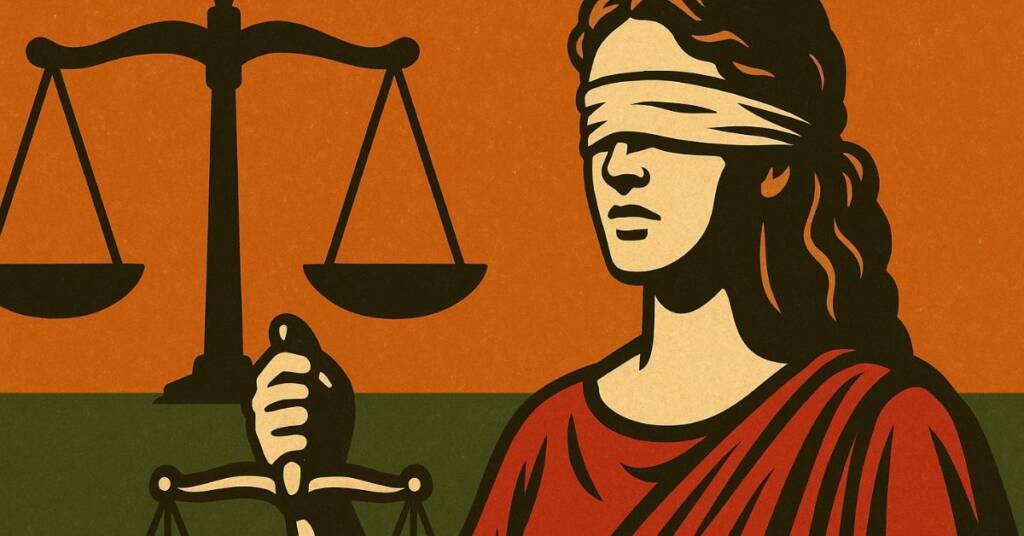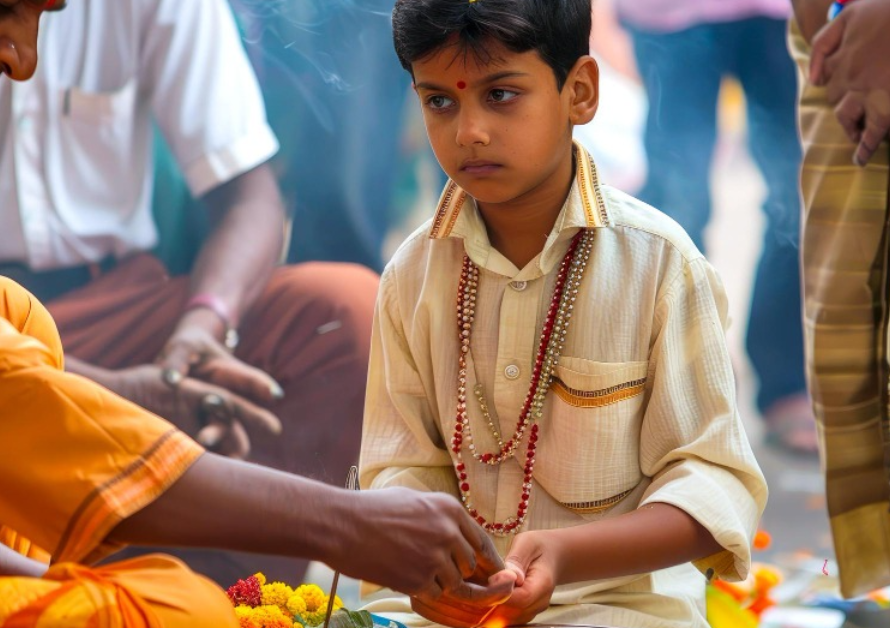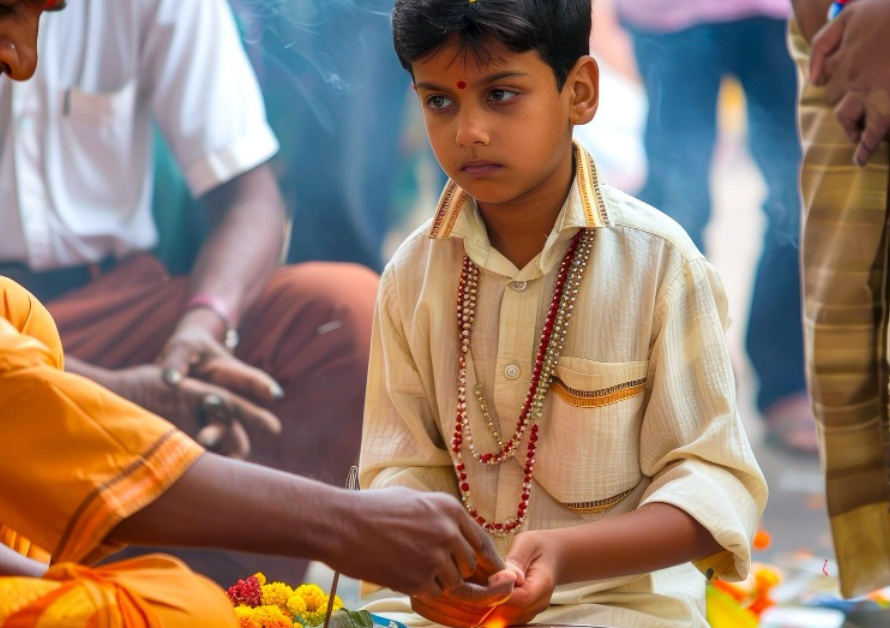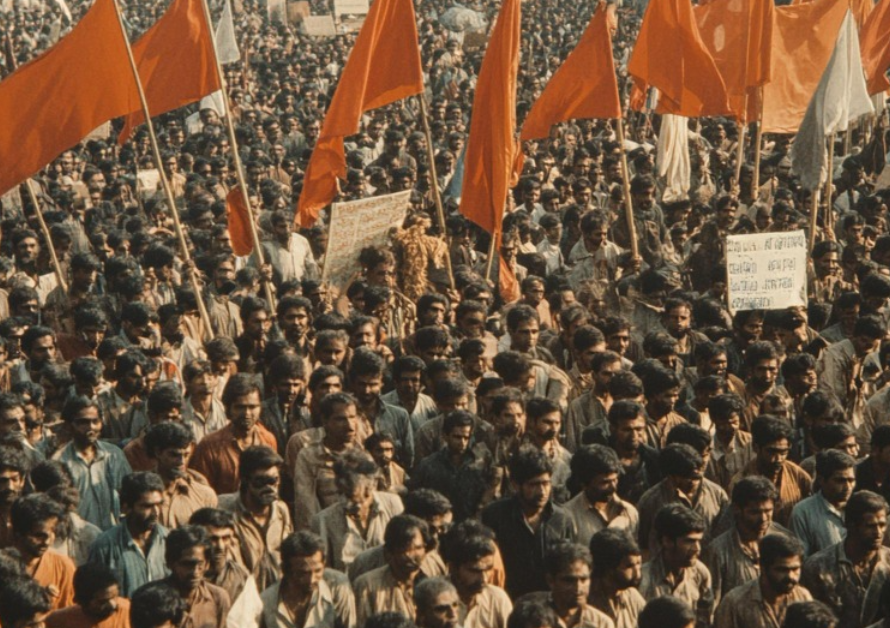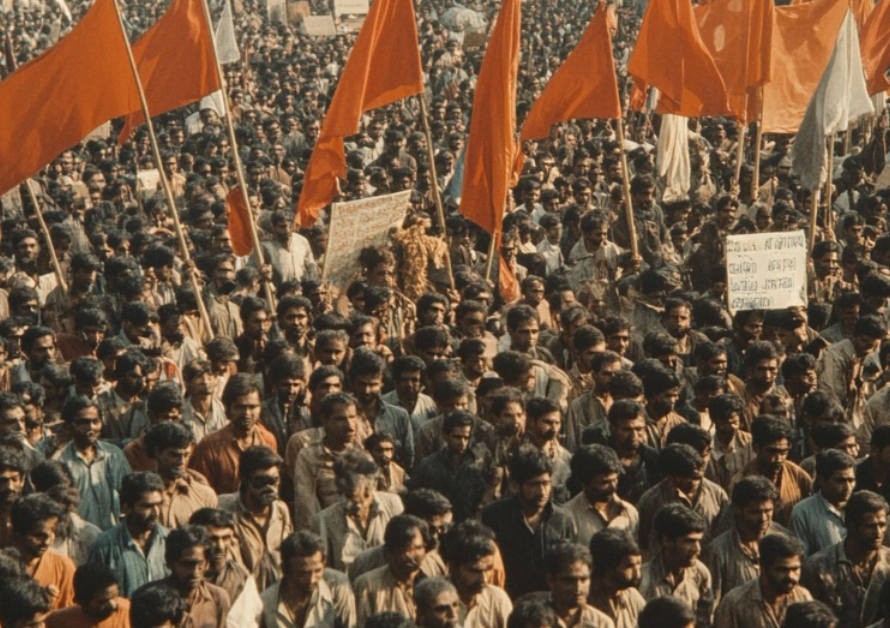India’s judiciary is often described as the “last hope of justice.” But when we study its recent actions, we find an alarming pattern of selective priority:
👉 For Hindus and nationalists: delays, decades of pendency, excuses.
👉 For terrorists, infiltrators, NGOs, and radicals: urgency, midnight hearings, immediate relief.
This is not coincidence. It is a consistent judicial ecosystem that has eroded faith among millions of ordinary Indians.
📊 Pendency and Delay – Justice Denied for Common Indians
- According to the Supreme Court’s own data, over 80,000 cases are pending in SC and 5+ crore cases in the judiciary overall.
- Average life of a case? 10–15 years for ordinary litigants.
- Property disputes, murders, rapes, Hindu temple cases – all drag on for decades.
Yet when it comes to:
- a terrorist’s mercy plea,
- an NGO challenging a policy,
- or a politically sensitive case…
👉 suddenly courts move at breakneck speed.
🕉️ Kashmiri Pandits – 35 Years, No Justice
The 1990 exodus and genocide of Kashmiri Pandits should have been the Nuremberg Trial of India.
But instead of fast-track prosecution:
- FIRs remained weak.
- Cases kept being transferred and adjourned.
No “midnight urgency” was ever shown.
- Contrast this with the Nirbhaya rape case (2012) – where nationwide protests forced the judiciary to act faster (still took 7 years).
- For Kashmiri Pandits, there was no such urgency – because “liberal-secular” lobbies kept the issue buried.
🐕 Street Dogs Case – A National Mockery
Recently, foreign-funded animal rights NGOs challenged a Supreme Court ruling on stray dogs. Within 10 days, hearings were fast-tracked.
Think about it:
- Dogs → 10 days
- Kashmiri Pandits → 35 years
This is not compassion. This is a warped priority system, where NGOs and global lobbies dictate what gets heard quickly – while real citizens bleed in silence.
🚨 Other Examples of Judicial Bias
1. Yakub Memon (Mumbai Blasts, 1993)
- Courts opened at midnight to hear his final plea.
- International media amplified the case as a “humanitarian” matter.
Did any Kashmiri Pandit family ever get a hearing at midnight? Never.
2. Afzal Guru (2001 Parliament Attack)
- Case dragged for years under the shield of “fair trial.”
- Human rights activists campaigned relentlessly for him.
The same activists stayed silent on Hindu genocide in Kashmir.
3. Shaheen Bagh (CAA Protests)
- Citizens stuck for months. Businesses destroyed. Students, office-goers harassed.
- Instead of quick eviction orders, SC called it a “right to protest.”
Common man suffered, but “NGO-backed protesters” were given cover.
4. Rohingya Deportation Cases
- The moment government tried to deport illegal Rohingyas, SC jumped in.
- Multiple hearings, human rights concerns.
But victims of illegal migration – locals losing jobs, women facing harassment – got no voice in court.
5. Hindu Temples and Sites
- Ram Janmabhoomi dragged for 134 years.
- Gyanvapi endlessly adjourned.
- Mathura Krishna Janmabhoomi stuck in “status quo” orders.
Meanwhile, mosque/church-related cases often receive urgent listing.
“Doesn’t all this point towards an anti-national and anti-Sanatan mindset?” ✅
❓ The Double Standard in One Line
- For Hindus and nationalists: Justice Delayed = Justice Denied.
- For terrorists, infiltrators, NGOs: Justice Express = Justice Abused.
🧩 Why This Bias?
- NGO & Foreign Lobby Pressure – Many PILs are filed by well-funded organizations that lobby for speed.
- Leftist Legal Ecosystem – A large section of senior advocates and activist-lawyers belong to a “liberal-secular” cabal that prioritizes anti-national causes.
- Judicial Activism in Selective Causes – Courts often overstep in policy areas (like environment, NGOs, minorities) but stay “silent” in Hindu or nationalist issues.
- Global Narrative Shaping – Quick judgments for minorities/terrorists are highlighted globally to project India as “tolerant,” while Hindu causes are suppressed.
⚠️ The Danger Ahead
Unproven voter fraud narratives, selective NGO-driven cases, and judicial delays in Hindu issues are not just about justice. They’re about:
- Destroying faith in institutions
- Creating unrest among majority citizens
- Opening doors for foreign intervention
If the judiciary continues this double game, Bharat’s democracy will rot from within.
The judiciary must decide:
- Is it the guardian of Bharat’s common man, taxpayers, and patriots?
- Or the umbrella for terrorists, infiltrators, and anti-national NGOs?
When dogs get justice in 10 days, but Kashmiri Pandits wait 35 years,
- It is not justice. It is betrayal.
If this imbalance isn’t corrected, the judiciary will no longer be remembered as the “temple of justice,” but as the fortress of injustice – protecting enemies, while ignoring its own people.
🇮🇳 Jai Bharat, Vandematram 🇮🇳
For old Blogs please visit our website www.saveindia108.in
To join our whatsapp Community please click
https://chat.whatsapp.com/FMr2WNIgrUVG9xK78FW5Dl?mode=r_t
To join our Telegram group please Click https://t.me/+T2nsHyG7NA83Yzdl Old Blogs are available on the telegram group also.

